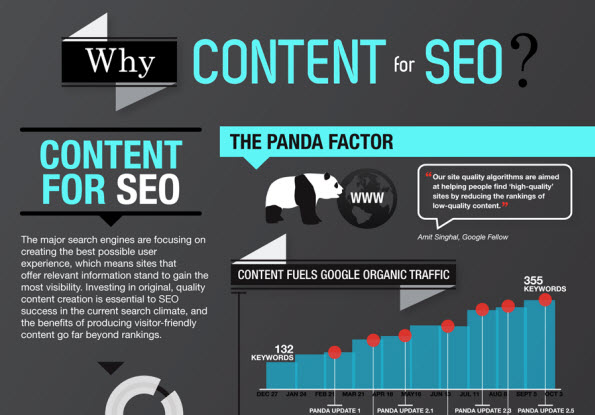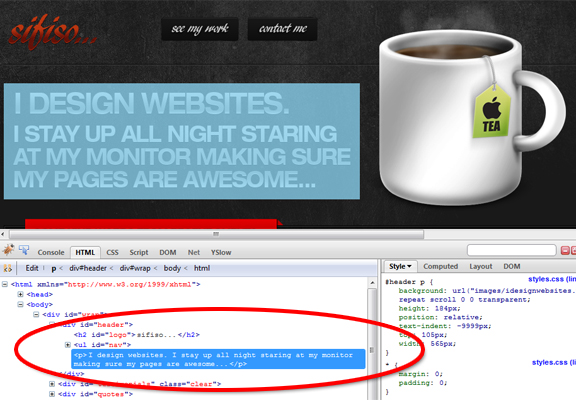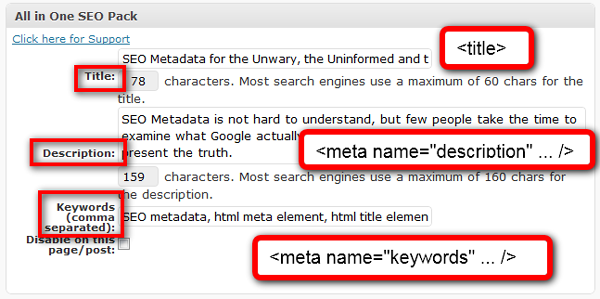10 basic SEO optimization tips
QuanTriMang - Owning a search engine website cannot be found to be good for both its creators and those who can benefit from finding it. However, a comprehensive SEO campaign requires a lot of effort and often requires support for special professionals. Fortunately, there are many things you can do on your own without much training (if you are a web designer, programmer or Webmaster) to improve your site's search engine rankings. In addition, they don't cost users a cent. Here are 10 things you can do.
1: Provide useful content
We often forget the purpose of search engines: allow people to find what they are looking for. All search engine algorithms are designed to support this purpose only. Certainly, good content, high quality will be ranked first in the results page. The tool will identify good content and when others view it, they will link to the page.

2: Traffic analysis
Checking web traffic with tools like Google Analytics will help you manage what users are looking for and need the most. Once you know which keywords attract the most readers and what kind of sites lead to the pages on your website, you can develop your strengths and improve your weak points. For example, if you're trying to score points for a certain keyword but see another keyword that has the potential to bring more traffic, you'll probably have to change tactics or maybe focus on keywords. more popular.
3: Use text, no images, AJAX, or other media types
The search engine has tried very hard to improve the readability of text in Flash, run AJAX applications, etc. However, it is better not to passively wait for these things to happen. While presenting a set of content for search engines can be confusing, why not make your site easier to work with. Specifically, present your content in writing, without any other type.
4: Write quality HTML
Writing clean HTML takes a long time to signal to search engines which documents are important and which are not. It will also help search engines easily access important content that users are trying to find. With clean HTML writing, you are also helping search engines to easily send traffic to your site.

5: Use sitemap
Create a sitemap - sitemap - and submit it to search engines like providing a GPS tool for your site. Instead of letting the tool's crawler discover all the pages in your pages (remember, crawlers limit the time on each page they visit), the sitemap will tell them exactly where to go. and frequency when going there. Sitemaps will increase the time each page is indexed and make sure important pages are found. There are even tools that automatically make sitemaps for you.
6: Don't pay for fake links
We all understand that inbound links, also known as backlinks, are very important for site rankings. However, do you know that if you pay for a backlink, you will be punished quite badly? There are many heavily penalized websites because their SEO team has paid to get backlinks. How were they discovered? In some cases, they were discovered because other sites found fake links. However, search engines also started using algorithms to detect these links. Therefore, do not pay for the link, you will have to regret it for a long time to do so.
7: Working for the link
Do not pay to buy backlinks does not mean that you can or should let them grow themselves naturally. There are many honest and legitimate ways to encourage other websites to provide links to your website. Remember, most websites now set up comment and forum entries so that you don't get many links from the website's URL address. At the same time, nothing prevents you from writing articles for a page and asking them to link to your website or ask them to provide links to your website accordingly. Look for websites that can complement your site instead of looking for competing sites.

8: Use canonical URL
The search appliance is only satisfied when a URL on your website contains a specific piece of information. Otherwise, they will start spreading the rankings for multiple URLs. It is even worse for you when these different URL addresses actually point to one page. By using canonical URL, you can be sure that only one URL to one page is used by the search engine.
9: Include metadata
Metadata does not mean that 'meta' tag is like a keyword, one of the most sought-after search engine goals like a few years ago. What we mean is things like alt tags in photos, titles to links, page titles, . This is a useful sign for search engines. Adding them to existing content is easy, though a bit time-consuming and a bit boring. Besides, metadata is also appropriate. Placing a text on the alt tag with the name ' img001.jpg ' in a file named ' img001.jpg ' doesn't help much.

10: Implementation of the 'weight loss' plan
As mentioned above, the search engines limit the time they spend when going through a website to index that page. Not only that, they also include page loading time in ranking websites. Sites with slow load times make their users unhappy, so tools like to rank high-speed pages up. Reducing file size by reducing HTML , CSS and JavaScript not only helps search engines index more pages at the same time but also improves ranking. Not only that, it also makes the website's readers more satisfied.
Other tips?
What steps have you taken to improve search engine rankings? Which method helps you the most? You know the other solution is more effective? Please share with other readers of QuanTriMang in the comment section.